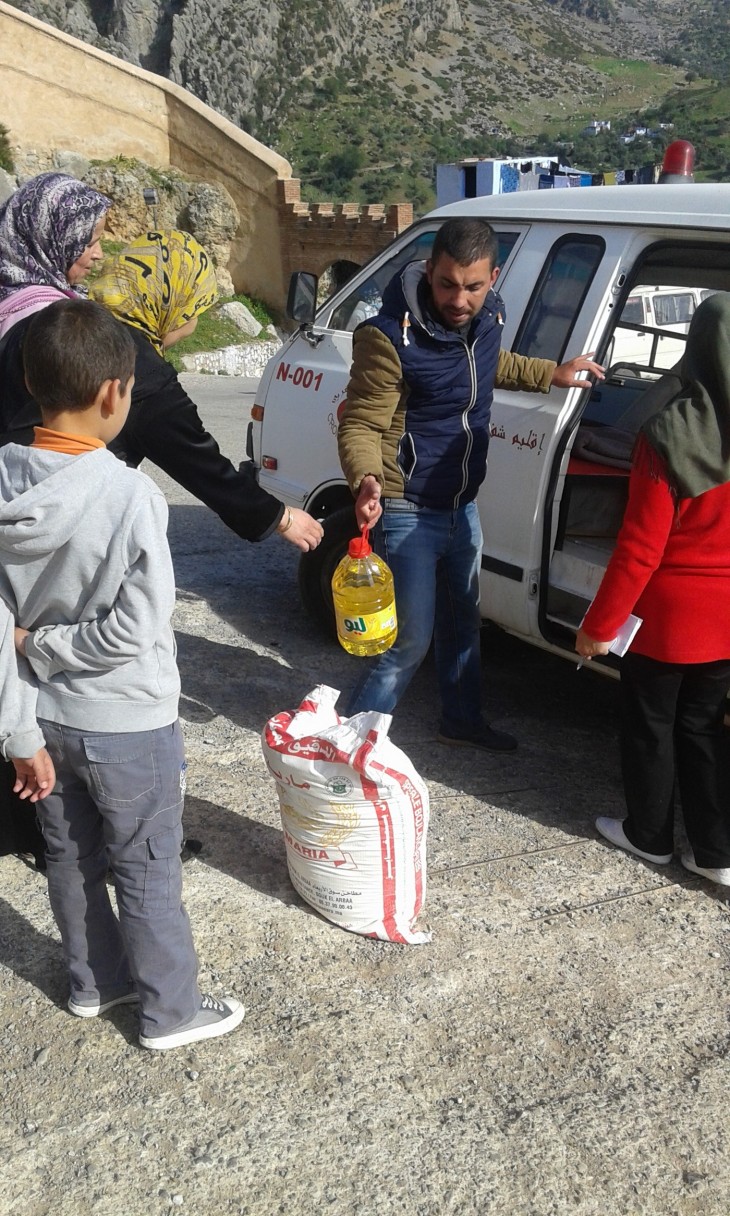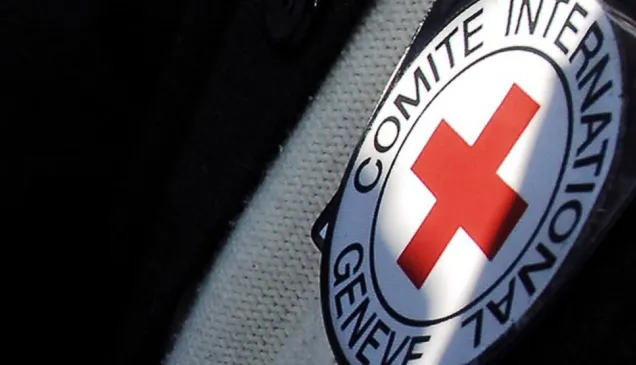Empress Shôken Fund announces grants for 2018
The Empress Shôken Fund is named after Her Majesty the Empress of Japan, who proposed – at the 9th International Conference of the Red Cross – the creation of an international fund to promote relief work in peacetime. It is administered by the Joint Commission of the International Federation of Red Cross and Red Crescent Societies and the International Committee of the Red Cross, which maintains close contact with the Japanese Permanent Mission in Geneva, the Japanese Red Cross Society and the Meiji Jingu Research Institute in Japan.
The Fund has a total value of over 15 million Swiss francs, and supports projects by National Red Cross and Red Crescent Societies to benefit their communities in various ways. The first grant was awarded in 1921, to help five European National Societies fight the spread of tuberculosis. The Fund has assisted more than 150 National Societies thus far.
The imperial family, the Japanese government, the Japanese Red Cross and the Japanese people revere the memory of Her Majesty the Empress Shôken, and their enduring regard for the Fund is shown by the regularity of their contributions to it. The grants are announced every year on 11 April, the anniversary of the death of Her Majesty the Empress Shôken.
For more information on the Empress Shôken Fund, please visit www.shokenfund.org.
The selection process
In 2018, the Fund received the larger number of applications in its history: over 50 National Societies applied for grants. The Joint Commission is pleased to announce that it has selected more recipients than in the past, and increased its support by 29% – to the value of Sfr 423, 060.
The Fund will support fifteen projects: in Belarus, Côte d'Ivoire, Egypt, El Salvador, Honduras, Latvia, Lesotho, Liberia, the former Yugoslav Republic of Macedonia, the Maldives, Pakistan, Palau, Romania, Somalia and Uruguay.
The Joint Commission gave priority to projects that were especially innovative; it also sought to ensure geographical diversity and breadth of activity. In addition, National Societies that may have been under-represented in the past were given special consideration.
In the future, the Joint Commission will focus even more on projects that are innovative and have a strong learning focus so that the broader Movement is able learn from project findings.
The 2018 Grants

2016 Grant, development of a social centre to care for homeless person. © Moroccan Red Crescent
Focus on innovative projects:
The Red Cross of the former Yugoslav Republic of Macedonia is working to bring social change to Roma communities in Macedonia. The grant will help it to experiment with local innovative approaches for engaging these communities in formulating and applying solutions to issues of concern to them.
As in Macedonia, the Red Cross of Romania is also experimenting with local innovative approaches for strengthening the social inclusion of marginalized Roma populations in Romania. The grant will allow to strengthen social inclusion of Roma populations in Romania by exploring positive deviance approaches to social inclusion.
Latvia's population is decreasing, which means that the Latvian Red Cross is likely to have fewer volunteers in the future. The grant will help the National Society to design innovative approaches for attracting more volunteers, particularly from rural areas of the country.
The Blood Donor Centre of the Pakistan Red Crescent Society is one of the few blood-collection centres in Pakistan. Having an adequate supply of blood remains a huge challenge for the centre, particularly during emergencies. The National Society will use the grant to develop a data bank for identifying and classifying blood donors.
Grants were also given to the following projects:
- The Red Cross Society of Belarus seeks to broaden the scope of its first-aid programme to include such groups as young people, the elderly, and the deaf or hearing-impaired. The grant will help it to extend the reach of this programme, particularly in Minsk and the Minsk Voblast.
- Côte d'Ivoire is facing an acute shortage of blood; there is often less than half the amount that is required. The grant will assist the Red Cross Society of Côte d'Ivoire to ensure, within six months, that an adequate amount of blood is available in Abidjan; the National Society will do this by mobilizing young people.
- In Egypt, adolescent girls are at constant risk of sexual and gender-based violence in the form of traditional practices such as child marriage and female circumcision. The grant will provide support for the Egyptian Red Crescent Society's efforts to protect adolescent girls from such practices. It will also help adolescent girls in semi-urban areas of the Cairo governorate to obtain health services and psychosocial support.
- The Salvadorean Red Cross Society seeks to respond to the pervasiveness of violence in El Salvador, and especially the involvement of children and young people in it, by promoting humanitarian principles even more vigorously than in the past. The grant will help it to stage a play and implement methodology, both of which will use the Fundamental Principles of the Red Cross and Red Crescent to address such subjects as stigmatization, discrimination and social inclusion. It will be implemented in schools and in hospitals where children are patients.
- The grant will assist the Honduran Red Cross to promote peace, non-violence and social inclusion; this will also help children at risk, socially, to get a better education.
- Lesotho has the second-highest rate of HIV infection in the world. The Lesotho Red Cross Society will use the grant to carry out activities for improving the health of HIV-infected adolescents, strengthen HIV people-prevention strategies and promote voluntary blood donation; it will enlist the help of young people to advocate safe practices.
- After the Ebola outbreak in Liberia in 2015, many international organizations or agencies working in the health sector left the country, with serious consequences for the provision of health care. The Liberia National Red Cross Society will use the grant to make timely medical referrals and good-quality first aid more widely available.
- There is a growing need for health-related information on migrants in the Maldives – particularly irregular migrants living in the Greater Male' Region – and for medical screening services in this connection. The grant will enable the Maldivian Red Crescent to address pressing health-related issues, such as the prevalence of communicable and non-communicable diseases among migrants, and to provide migrants with volunteering opportunities that will foster their social inclusion.
- The Palau Red Cross Society recently formed a partnership with the home health unit of the Palau health ministry, Palau Community College and the Palau Area Health Education Centre. This partnership was formed to enable the National Society to contribute to the well-being of the people of Palau. The grant will help the National Society to provide housebound people with caregivers who are more knowledgeable and attentive.
- The Somali Red Crescent Society operates in a highly complex environment, one where strong leadership is required for conducting humanitarian diplomacy in behalf of vulnerable communities. The grant will be used to develop leadership and managerial capacities among board members and senior officials of the National Society.
- The Uruguayan Red Cross has significantly fewer active volunteers, and its branches are much less active, than in the recent past. The grant will enable it to develop more effective strategies for recruiting and retaining volunteers.



